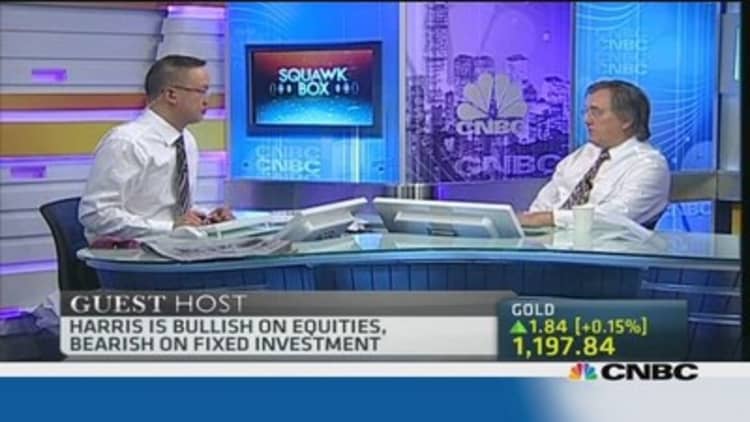The Japanese yen was on track to end the year with its biggest annual loss against the U.S. dollar in 34 years, easily making it the worst performing major currency of 2013.
The yen stood at about 104.92 to the dollar in Asia trade, close to a five-year low hit a day earlier at about 105.41. It is down almost 22 percent this year, putting it on track for its biggest one-year percentage fall against the dollar since 1979 when it tumbled almost 24 percent, according to data from Thomson Reuters.
(Read more: Resurgent carry trade to keep yen weak)
Japan's currency has been on a sharp downward slope ever since the country's Prime Minister started talking about the need for an aggressive monetary policy to help kick start a moribund economy a year ago.

And in recent months, speculation about an unwinding of U.S. monetary stimulus has boosted the greenback and fuelled selling in the yen.
"I think the yen still has quite a bit of weakness still to go," Richard Harris, CEO at Port Shelter Investment Management told CNBC Asia's "Squawk Box" on Tuesday.
"My concern about Japan is that it is like a jet on the runway and the question is will it actually take off? The jury is still out on that and whether the liquidity surge will do more than just push the market up."
Yen weakness, which boosts Japanese exporters' competitiveness, has fueled a rally in the stock market. The blue-chip Nikkei stock index finished the trading year on Monday with its best gains for over 40 years. Japan's stock market was closed for a holiday on Tuesday.
(Read more: Japan's Nikkei logs best year since 1972)
"Abenomics is going to be working. I think you're going to end up seeing economic activity in Japan picking up rather dramatically," Dennis Gartman, the editor and publisher of The Gartman Letter told CNBC Monday, referring to the economic policies of Japan's Prime Minister Shinzo Abe.
"But the most important thing is the weakness of the Japanese yen is going to have a very, very strong impact upon Japanese equities," he added.
(Read more: Gartman sees continued bull market in Japan)
Back to currency wars?
Still, renewed yen weakness appears to have raised alarm bells among Japan's regional neighbors, threatening to make currencies a contentious issue heading into the New Year.
China and South Korea on Monday expressed concern about the weak yen, which comes at the expense of stronger currencies elsewhere.
The yen is down almost 19 percent against the South Korean won this year, while on Monday the yen hit a 15-year low of 5.7490 yuan. The euro meanwhile is up a hefty 27 percent against the yen.
"(Japan) will look to keep the economy growing by boosting exports through the yen's depreciation," Reuters reported Xu Shaoshi, chairman of China's National Development and Reform Commission, as saying on Monday at a meeting with the South Korean finance minister in Seoul.
"This is a policy that will affect South Korea and China, and therefore needs to be monitored closely," Xu said.


